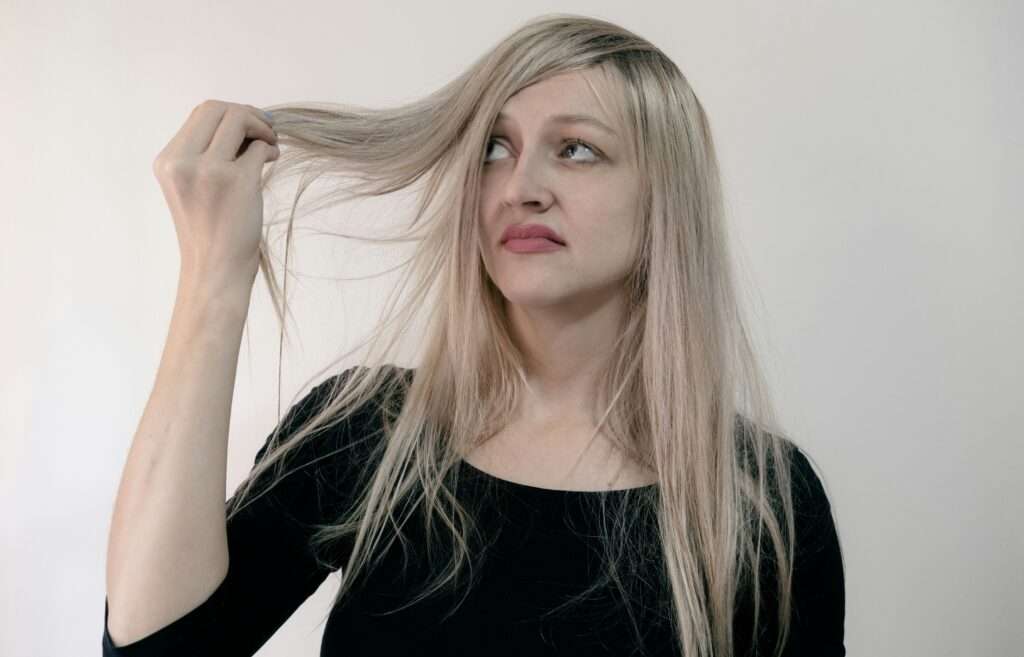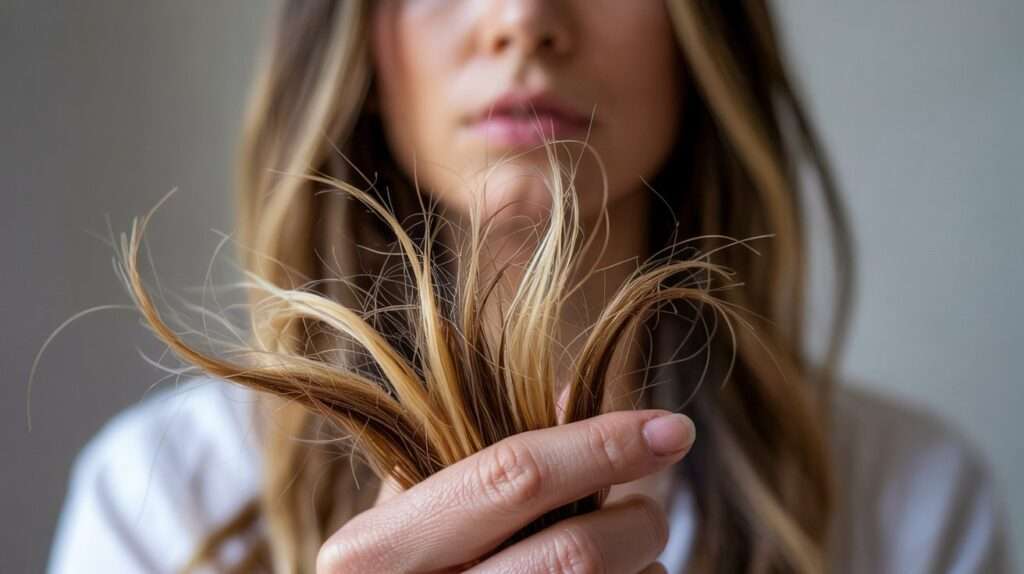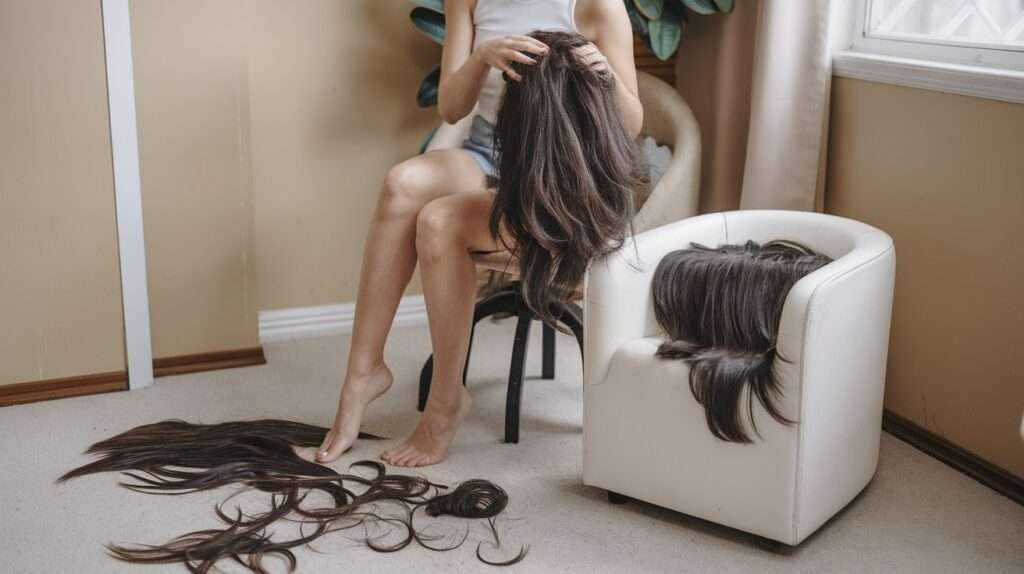Introduction
Dealing with an itchy scalp is very frustrating, if you don’t know whether it’s dandruff or just dry scalp. I also faced the same problem. We will tell you the differences between dandruff vs dry scalp. First, you need to understand the difference between dandruff and dry scalp to find out the right solution. Let’s know the reasons your scalp is flaking or not, and share some practical tips to treat it.
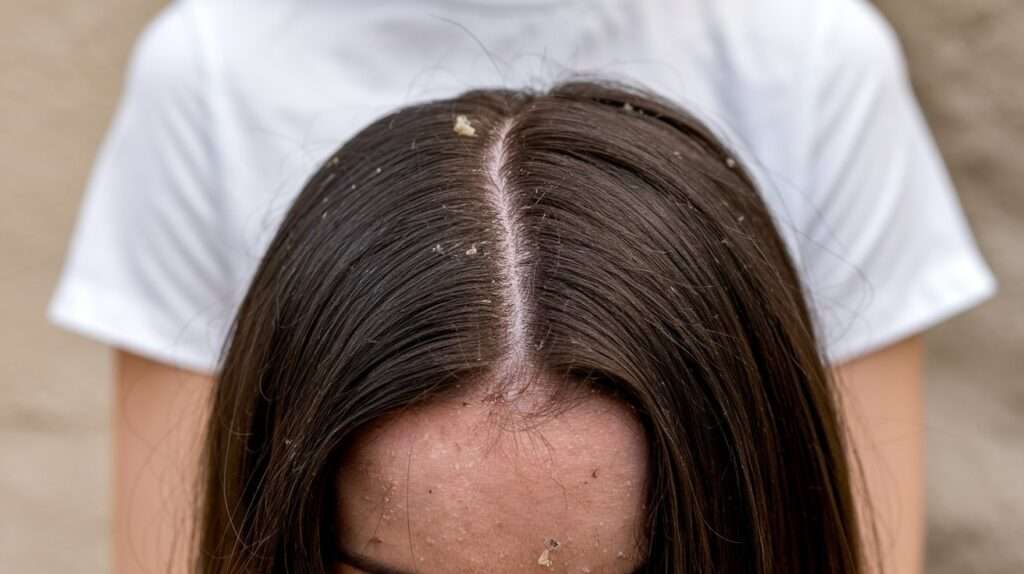
This post may contain affiliate links, which means we may receive a commission, at no cost to you, if you purchase through a link. Please see our full disclosure for further information.
What Is Dandruff?
Dandruff is a yeast-like fungus called Malassezia globosa caused by excess oil on the scalp. This causes itchiness, irritation, redness, and greasy-looking flakes on your hair. It’s like yellowish or white.
What Is Dry Scalp?
Dry Scalp is like your dry skin. When your scalp needs moisture, it happens. When your scalp dries, it becomes itchy and sheds tiny dry flakes. These flakes are usually smaller, whiter, and less oily, and they happen especially in colder months.
Main Differences: Dandruff vs Dry Scalp
Dandruff is oily, white, or yellowish, and dry scalp flakes that are smaller and white. Dandruff is caused due to excess oil and fungus, while dry scalp is caused because of your scalp needs moisture. To fully treat dandruff, it requires anti-dandruff shampoos, while dry scalp needs hydration and gentle hair care.
| Dandruff | Dry Scalp |
| Large in size and yellowish | Smaller in size and white |
| It causes itchiness and redness | It causes itchiness and tightness |
| It happens anytime | It happens especially when the weather is very dry and cold |
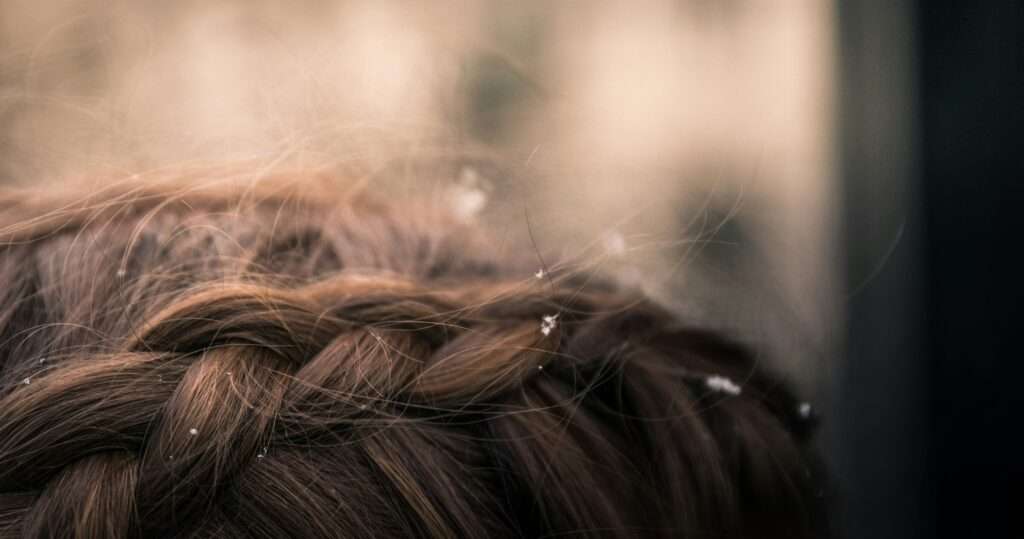
Reasons Your Scalp Must be Flaking
1. Not Getting Enough Moisture
Frequent washing and, dry environment can drain out moisture from your scalp. Using a hydrating shampoo and limiting your heat sessions helps to retain your scalp’s moisture.
2. Oil Accumulation on Scalp
Excess oil can cause too much Malassezia fungus. For that reason, dandruff happens. To stop that, use a mild clarifying shampoo, which can help to control oil levels and stop flaking.
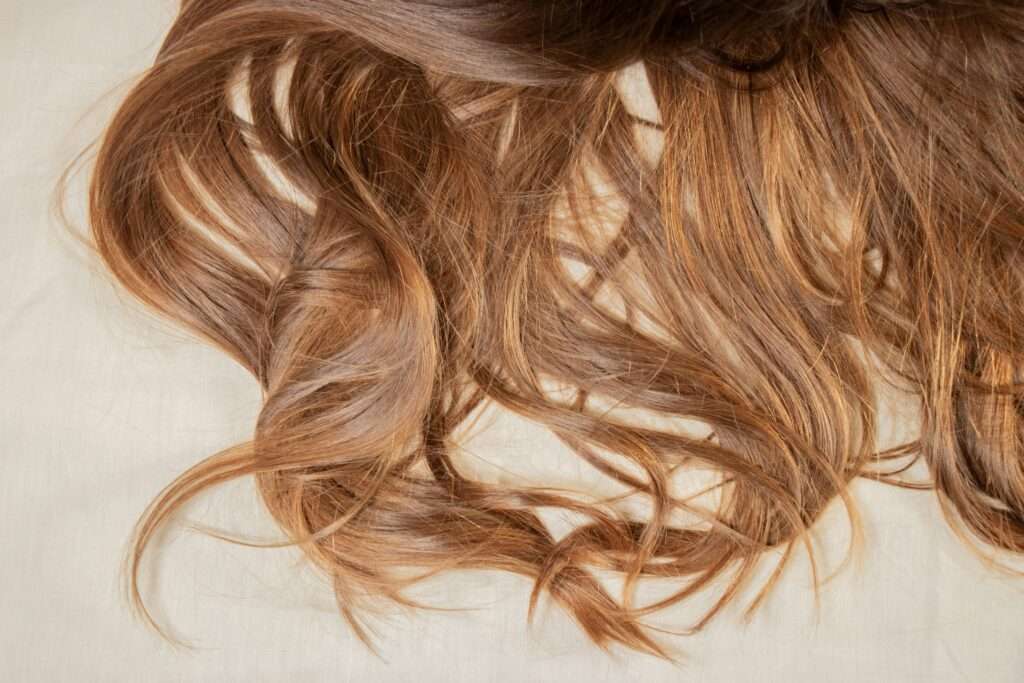
3. Your Diet and Hydration Routine
A bad diet and not drinking much water can also affect your overall health. For that reason, you need to maintain a good diet (fatty fish, nuts, leafy vegetables, and eggs), including omega-3s, and drink a lot of water.
4. Not Using Good Quality Hair Products
If you’re not using good-quality hair care products that are made of good-quality ingredients is also the reason for your redness and irritation of your hair. Some products, like sulfates and cheap quality fragrance, can cause irritation. Using a good quality, gentle, fragrance-free hair product can reduce your scalp from irritation and flaking.
Check out the Best Hair Products on AMAZON
5. Skin Conditions
Skin conditions can also be one of the reasons for flaking scalp and dandruff, along with redness. itchiness and irritation. If non-prescribed medicine treatments are not helping, you need to go to a good dermatologist, he/she may prescribe some medication.
6. Environmental Factors
Maintaining your living atmosphere is also important. Very dry air, cold, pollution, and hard water can screw up your scalp’s pH balance and moisture levels, from that it can cause redness, itchiness and irritation, and happens flaking.
7. Washing Factors
If you wash your hair too much, it can dry out your scalp very fast; also, not washing your hair regularly can cause oil and dead skin to build up, from that the chances of flaking is increased. You need to shampoo your hair every 2 to 3 days if you have oily hair, and if you have dry hair, shampoo once a week for good results.
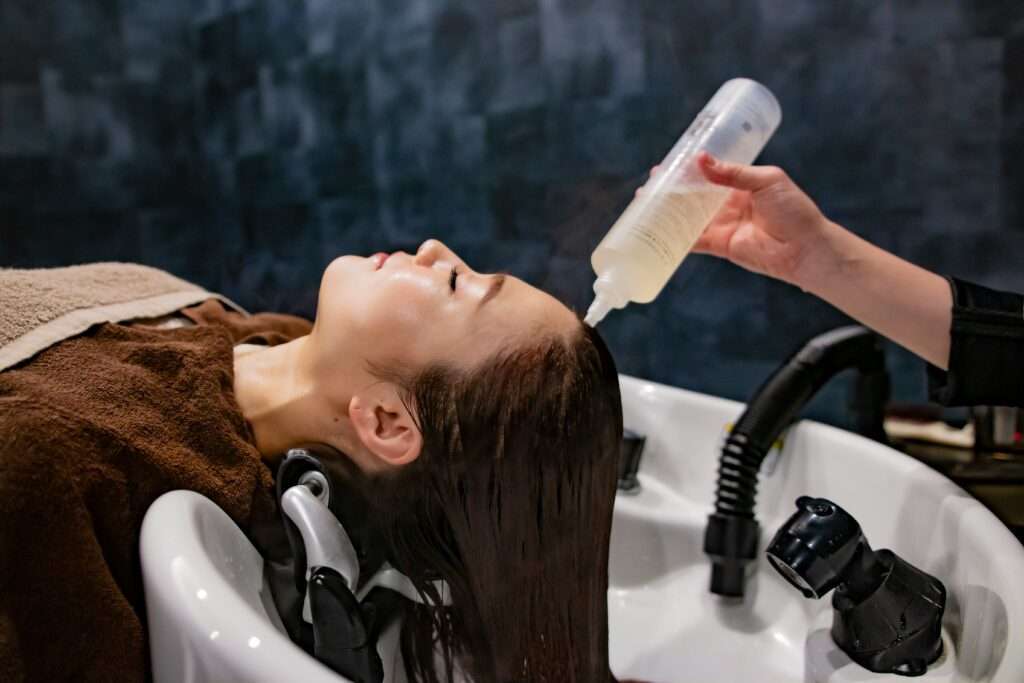
How to Prevent Your Scalp
From Dandruff
- Using antifungal shampoos can help. Try PHILIP B Anti-Flake Shampoo, PHARMBANNER Anti-Fungal Shampoo, ProBliva Fungus Shampoo, Nizoral Anti-Dandruff Shampoo, and Dermazen Cleansing Dandruff Shampoo.
- Massaging your scalp to boost circulation can help.
- Using tea tree oil. Its natural antifungal properties can also help to reduce dandruff. Use Tea Tree & Rosemary Oils Shampoo – Anti Dandruff, MAJESTIC PURE Tea Tree Essential Oil, Tea Tree Shampoo & Conditioner Set, HASK Invigorating TEA TREE OIL, Botanic Hearth Tea Tree Shampoo and Conditioner Set, and Tea Tree Mint Shampoo and Conditioner.
From Dry Scalp
- Using moisturizing masks, such as aloe vera (Fruit of the Earth Aloe Vera Gel, NaturSense USDA Organic Aloe Vera Gel, Amara Beauty USDA Organic Aloe Vera Gel, and Seven Minerals Organic Aloe Vera Gel) gel and coconut oil(Biosilk Silk Therapy with Natural Coconut Oil, Oliology Coconut Oil, Coco & Eve Miracle Hair Elixir. Coconut Oil, OUAI Wave Spray – Texture Spray for Hair with Coconut Oil, and US Organic Fractionated Coconut MCT Oil) can help treat dry scalp.
- Use a soft brush to exfoliate the scalp to remove flakes.
- Avoid using a hot water shower on your hair, as it can dry your scalp.
How Do You Know When to See a Dermatologist?
Despite your home remedies, if your scalp flakes or if you experience redness, itchiness, that means it’s time to go to see a dermatologist. He/she can determine the problem related to your scalp’s condition and decide if it needs medical treatment or not.
Conclusion
To solve your scalp problem, first, you need to understand the main difference between dandruff and dry scalp. By identifying the correct problem, you can go for the right treatment for your scalp, and if you want a professional’s help, then visit a good dermatologist.
Dandruff vs Dry Scalp FAQs
- What are the common reasons for scalp flaking?
Dandruff, Dry Scalp, Product Buildup, etc.
- Best ways to treat dandruff?
Using an anti-dandruff shampoo, wash your hair regularly, and avoid using cheap hair products.
- Does my diet affect my scalp health?Yes, if your diet is lacking omega-3 fatty acids, zinc, and vitamins, etc can cause scalp issues.

